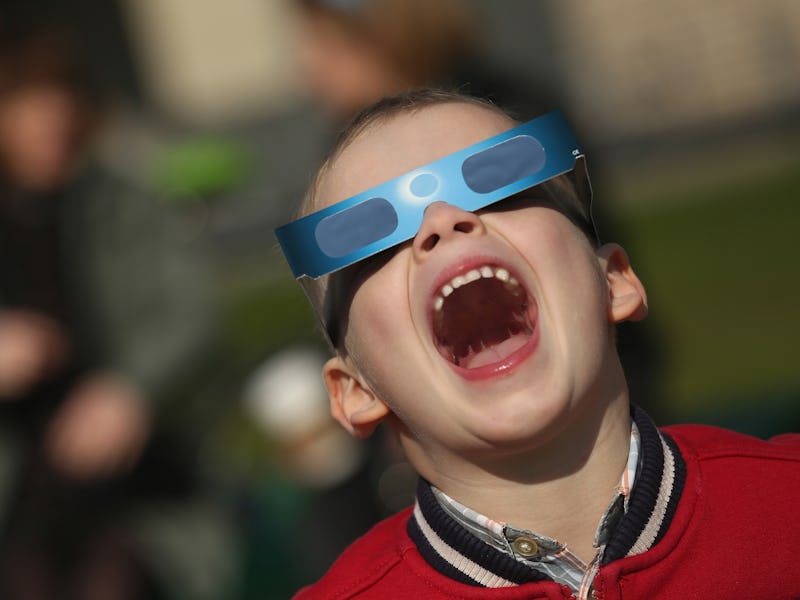Drop Your Smartphone and Just Enjoy the Eclipse
What's the point of a selfie?

I’ll be in the path of totality of the Great American Eclipse today, but I don’t plan to take a single photograph.
And you shouldn’t either.
It’s not because it’s hard. It seems like every blog and newspaper in the world has put out its own guide to shooting the moon’s occlusion of the sun. I’m definitely who would otherwise be expected to photograph the eclipse: I’ve got a pair of professional-grade DSLRs and a suite of lenses that I use to shoot news, performances, weddings, and the odd family vacation. But I didn’t even bring them along for this event. It’s just not worth it with the eclipse.
On the farm in the path of totality in Eureka, Missouri where I’ll be viewing the eclipse, the moon’s shadow will entirely cover the sun for about two minutes. That’s about the length of time it takes to make a bowl of breakfast cereal or explain how an eclipse works. There’s a very good chance those will be the only two minutes I’ll spend in an eclipse’s path of totality in my life. I want a rich sense memory of that event: what I witnessed, how it felt, who I was with, and how they reacted.
Taking photos doesn’t help with that.
People set up cameras and telescopes as they prepare to watch the total eclipse at South Mike Sedar Park on August 21, 2017 in Casper, Wyoming. Millions of people have flocked to areas of the U.S. that are in the 'path of totality' in order to experience a total solar eclipse.
A series of experiments published in Psychological Science in June showed that photography narrows your experience of an event. Your visual memory — specifically of the things you photographed — becomes sharper and more accurate. But everything else, including what the thing sounded like, and visuals that you didn’t photograph, falls away.
That matches up with my own experience.
I’ve shot maybe four dozen plays and concerts, a dozen weddings, and even more news events in my life. I don’t remember any of them — or at least, I don’t remember any of them in the same textural, emotional way that I remember the couple dozen performances, half-dozen weddings, and handful of bona-fide news events I’ve witnessed while off the clock. Instead, I could tell you the rough beats of what happened, the strategizing and thinking that went into each shot, any mistakes I made, and how the final images came out.
I don’t want my memories of this eclipse to be like that. I want them to be like my memories of my best friends’ weddings or the great plays and concerts I’ve seen: rich, sharp, and emotion-driven.
That’s also a good strategy for making the most of the eclipse on the day of. Shooting is a technical exercise. You focus on the angle, the camera settings, the timing, and time slips by. Those two minutes will be over before you know it.
But awe is a powerful emotion. A series of three experiments published in Psychological Science in 2012 found evidence for three significant effects of the feeling you get at the sight of astonishing natural phenomena: An increased willingness to give your time to other people, greater life satisfaction, and — most critically — less impatience. The researchers suggest that all of that means you get more out of each moment while experiencing awe. I want to take advantage of that today. Putting a camera in the way isn’t going to help with that.
The coming eclipse is this cool-as-heck thing that we all get to experience, one way or another, together today. There will be lots of hired pros — and amateurs ignoring my advice — with their cameras trained on the sky. They’ll get left with sharp memories of what an eclipse literally looks like through a zoom lens, but little textural experience of the event. But you’ll get to take advantage of their photos. They’ll have missed forever their chance at just watching the event.
So put down the camera, hold hands with someone you love, and watch the sky (safely, course).
See Also: Welding Masks, Colanders, and Other DIY Ways to View the Total Solar Eclipse